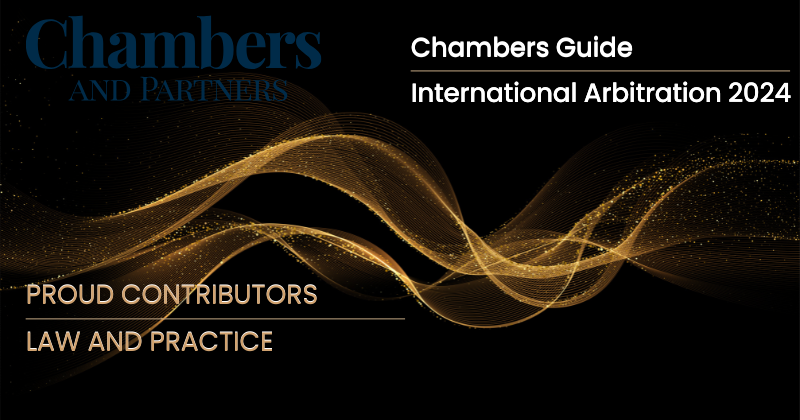Background
Have you ever been roped into an emergency technology or digital-enabled online fundraiser? The fundraiser could be aimed at raising funds to meet the medical bills of a sick person, or to contribute towards funeral arrangements. It could also be aimed at raising funds to assist a student in paying for their school fees or funding a worthwhile charitable community project. Even if you may have not participated in such fundraisers, you may have come across calls for contributions online. This method of raising funds from a large group of people using an online platform is called “crowdfunding”. As the term suggests, crowdfunding connotes raising money from a crowd or many individuals or entities to finance a project or business through a website, an internet-based portal, or such other technological application.
Crowdfunding varies depending on the objectives of the project being funded. For instance, investment-based crowdfunding, unlike donation crowdfunding exemplified above, is meant to fund a business idea or a profit-making project. Innovative start-ups have been major beneficiaries of crowdfunding, and as is the case for business associations, the law comes in to address the interests of investors, issuers and project owners; issues of liability; consumer protection; procedural compliance; money-laundering; and data protection measures among others.
Considering the rise of crowdfunding markets in Kenya and the need to promote investor confidence in the crowdfunding sector, the Capital Markets Authority (the Authority) together with the Cabinet Secretary for National Treasury and Planning, promulgated the Capital Markets (Investment-Based Crowdfunding) Regulations, 2022 (the Regulations). The Regulations clearly set out the definitions, responsibilities and liabilities of various actors or participants in crowdfunding transactions such as crowdfunding platform operators, investors, issuers, and other pertinent issues, for instance, fundraising limits and persons legally prohibited from crowdfunding. In this article, we highlight some of the salient issues outlined in the Regulations.
Important Definitions
The Regulations provide for a “cooling off period” within which an investor can withdraw from a crowdfunding transaction without any restrictions. This means that a project owner or issuer cannot provide conditional penalties in its offer documents for cancellation or withdrawal from the transaction within a certain period. However, the cooling off period has been left at the discretion of the project owner or issuer to determine. As a balance of power, the investor may negotiate for a longer cooling off period.
Another key term in the Regulations is “crowdfunding platform” which is defined to mean a website, internet-based portal or such other technological application, which facilitates interactions between investors and issuers and other related interactions.
A “crowdfunding platform operator” is an entity licensed by the Authority to facilitate a crowdfunding transaction or a transaction involving the offer or sale of investment instruments through a crowdfunding platform. An “issuer” on the other hand, is a company which issues the security or investment instrument, which is hosted on the crowdfunding platform for purposes of crowdfunding. Whereas an issuer is, in common parlance, the project owner, most of the responsibilities in a crowdfunding transaction will lie with the platform operator.
The Regulations also define a “start-up” as a company incorporated in Kenya that is newly established or has not been in existence for more than ten (10) years and is established for the purpose of developing an innovative and scalable product or service. This definition is important because the Regulations restrict raising funds via crowdfunding platforms to only micro, small, and medium enterprises (MSMEs) and start-ups. As such, not all companies are eligible to use crowdfunding as a means of raising funds under the Regulations.
Crowdfunding Platforms and their Operators
The platform operators, for purposes of investment-based crowdfunding, must be licensed by the Authority, and a person who establishes, maintains or operates an investment based crowdfunding platform without a licence commits an offence and is liable to the penalties outlined in section 34A of the Capital Markets Act (Cap 485A) Laws of Kenya (the Act).
The conditions for the grant of licence are provided under the Regulations and among them include that the applicant should provide:
- evidence of its financial soundness and capital adequacy confirming the financial position of the company including audited financial statements, management accounts and certified bank statements, where applicable; (ii) detailed information of the crowdfunding website or application to be used including system capacity and security measures and evidence of its functionality; (iii) details of platform outsourcing arrangements, if any; (iv) proposed procedures to verify the completeness, correctness and clarity of the information of the issuer and investment hosted on the platform; and (v) adequate risk management framework that includes details of its fraud detection and prevention measures.
Further, only companies limited by shares with a minimum paid up share capital of KES 5 million and a further minimum liquid capital of KES 10 million or eight percent (8%) of its liabilities, whichever is higher, are eligible to be licensed as platform operators for purposes of investment-based crowdfunding. Nevertheless, the Authority may refuse to grant the licence or revoke an already issued licence, where reasons to do so exist.
On the flipside, a platform operator cannot simply opt-out of crowdfunding business without a smooth and orderly transition. The platform operator is required to notify the Authority at least thirty (30) days prior to ceasing its operation, and the Authority must be satisfied that neither investors nor issuers are disadvantaged by its closure. Additionally, the Authority may impose terms and conditions to ensure orderly cessation of business.
It is important to note that a crowdfunding platform operator is prohibited from raising its own funds through its platform; offering investment advice; handling investor funds; promising a guaranteed return to investors; and promising a guaranteed outcome of the offer to the issuer. On their part, issuers are prohibited from hosting the same offer document concurrently on multiple crowdfunding platforms.
Crowdfunding Participants and the Limits of Raisable Funds
Crowdfunding participants are the relevant issuers and investors. An issuer under the Regulations must be an MSME with a minimum of two (2) years excellent operating track record and good corporate governance. A start-up with a good operating track record and good corporate governance can also be considered as an eligible issuer.
Issuers may only raise a maximum of KES 100 million within a twelve (12) months’ period. However, an issuer may apply to the Authority requesting to raise more than the capped limit within a specified duration, and the Authority may issue a notice of no-objection to such request if satisfied. Investors eligible to invest in crowdfunding investments are either sophisticated investors or retail investors, subject to investment limits prescribed by the crowdfunding platform operator but up to a maximum of KES 100,000.
The Act defines a sophisticated investor as (i) a person who is licensed under the Act; (ii) an authorised scheme or a collective investment scheme; (iii) a bank, a subsidiary of a bank, insurance company, co-operative society, statutory fund, pension or retirement fund; or (iv) an individual, company, partnership, association or a trustee on behalf of a trust which, either alone or with any associates on a joint account, subscribes for securities with an issue price as the Authority may prescribe from time to time.
Crowdfunding is a quick way to raise funds from many investors, especially for innovative businesses that lack capital to achieve their investment objectives such as start-ups and MSMEs.
The Crowdfunding Transaction
Crowdfunding transactions are required to provide for the permitted investment instruments, offering document, requirements for issuers, use of funds, transaction fees, the responsibilities of platform operators and issuers including any restrictions thereof. The investment instruments are limited to shares, debt securities including bonds or debentures or any other instruments approved by the Authority from time to time.
Platform operators are required to develop a standardised offer document which captures the details of the transaction to be used by the issuers to offer securities to the investors in line with the Regulations. An offering document should be made available for approval to the Authority at least forty-eight (48) hours before its publication on the platform. Once published, the offer period should not commence until at least fourteen (14) days have lapsed. The offer document should also clearly state the period of offer and the threshold amount for the offer. In the event the minimum threshold amount is not reached, the offer is to be withdrawn and the monies raised returned to the investors within forty-eight (48) hours, without any deductions. Any costs of such refunds are to be fully borne by the issuer. Where an offer is withdrawn, the issuer may undertake a fresh crowdfunding transaction not earlier than ninety (90) days after the withdrawal.
It is an offence under the Act for a person to make false statements in any form or context in an offering document knowing the same to be false or misleading. The offence, upon conviction, is punishable by a fine not exceeding KES 10 million or imprisonment for a term not exceeding seven (7) years where the offender is an individual, and a fine not exceeding KES 30 million where the offender is a company.
Compliance with Capital Market Regulations
Most of the obligations in the Regulations rest with the crowdfunding platform operators who are required, in addition to the Regulations, to comply with the Capital Markets (Conduct of Business) (Market Intermediaries) Regulations, 2011, the Capital Markets (Corporate Governance) (Market Intermediaries) Regulations, 2011, the Guidelines on the Prevention of Money Laundering and Terrorism Financing in the Capital Markets, and any other existing capital market laws and regulations to the extent applicable except where expressly exempted by the Authority.
Conclusion
Crowdfunding is a quick way to raise funds from many investors, especially for innovative businesses that lack capital to achieve their investment objectives such as start-ups and MSMEs. However, inter- national investors and other sophisticated investors are usually skep- tical of unregulated markets due to lack of clear procedures such as client accounts rules, codes of conduct, and investor protection. It is therefore anticipated that the Regulations will enhance investor confidence in Kenya, whilst providing additional means through which start-ups and MSMEs can raise capital





